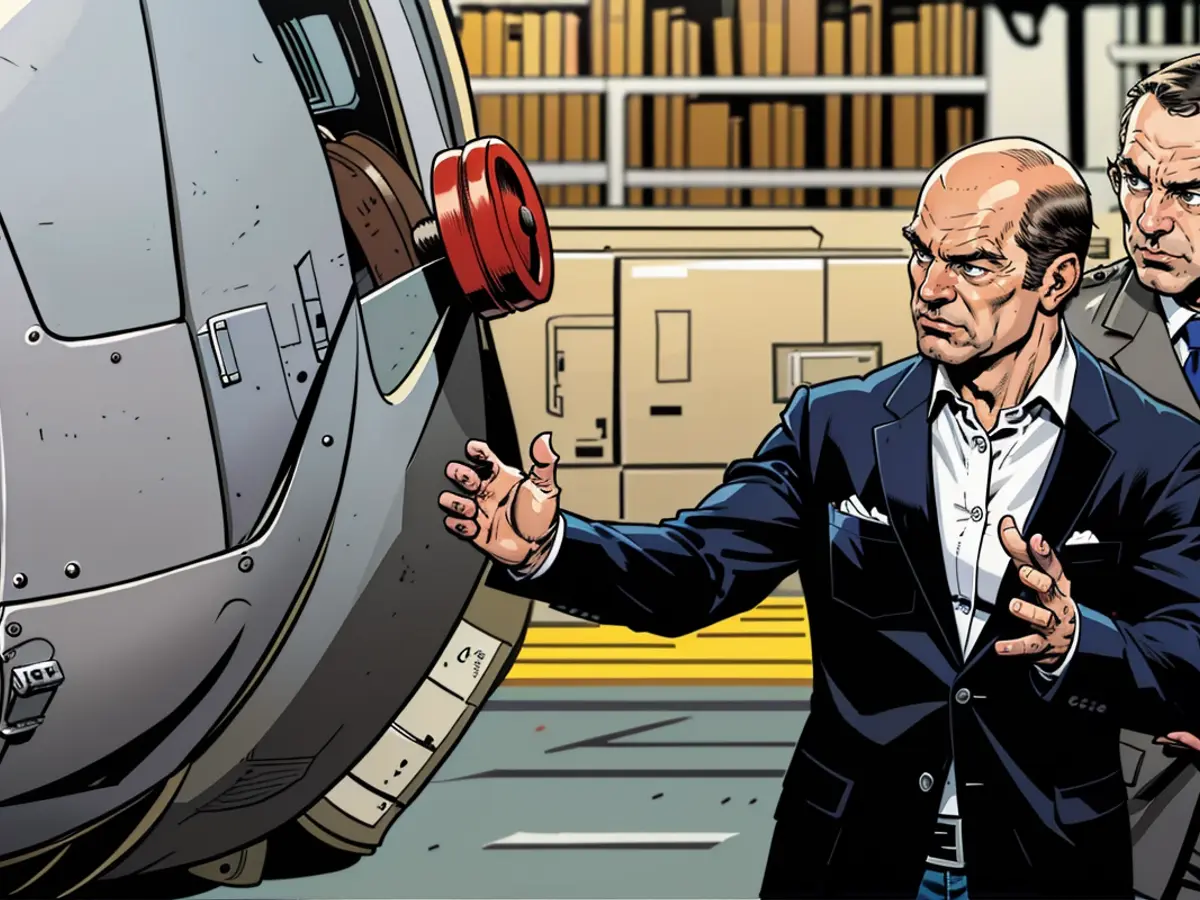Military equipment manufacturing sector - Scholz calls for enhanced collaboration on European military projects.
At the beginning of the International Air and Space Exhibition (ILA), Chancellor Olaf Scholz vowed support for the weapon sector, enabling an expansion of their manufacturing capabilities. Scholz, a member of the SPD party, shared his perspective on Wednesday at the Berlin-Brandenburg Airport's event grounds, stating, "We now see more clearly than ever before how valuable a strong European and German defense industry is, capable of consistently producing all crucial types of weapons and ammunition." During his speech, he confirmed the order of 20 new Eurofighter fighter jets.
In response, experts in defense and security policy insisted that the Bundeswehr should be equipped more thoroughly beyond 2025. They pointed out that the 100 billion euros' Bundeswehr special fund falls short of the anticipated necessities. "As early as 2025, the 'scissors' between current medium-term financial planning and the actual funds required by the Bundeswehr will emerge," cautioned the nine associations in a joint statement. They alluded to Defense Minister Boris Pistorius' (SPD) demand for an extra 6.5 billion euros in the military budget to meet their requirements. The signatories called for this allocation.
Economics Minister Robert Habeck (Greens) sided with Pistorius, echoing his reasoning. Due to ongoing conversations, Habeck refrained from expressing further details, but acknowledged the need for greater defense capabilities. He emphasized the significance of investing in security, both to support Ukraine and protect Germany. Habeck also stated that the sector requires "assured purchase conditions to invest."
Scholz noted that the German government has evolved its attitude toward the armament sector. "The expansive pathway that politics in Germany has taken around the arms industry in the past is over. The unlawful attack by Russia on Ukraine has forced all of Germany to confront a new reality in terms of security policy." To assist the industry amidst time constraints, some weapon systems could be acquired from partners with market-ready products. "Speed is essential," said Scholz, "also while I'm actively working to preserve and expand production capacities." This legislative period will see an additional 20 Eurofighters ordered beyond the current 38.
Moreover, the Chancellor emphasized the need for closer cooperation between European partners. "We can't afford to have a significantly greater quantity of competing weapons systems than, for instance, the U.S. across Europe." Scholz wants fewer systems, each reflecting the strengths of the respective industries. This would lead to interoperability between European militaries and increased quantities.
During the event's opening, Michael Schoellhorn, the President of the German Aerospace Industries Association, underscored the industry's response to current geopolitical challenges with innovative solutions. "Civil aviation demonstrates progress in sustainability," he said, "which will be a competitive benefit." Military aviation previews the systems of the future. Space travel illustrates how Europe can ensure independent access to space usage.
Indeed, industry leaders face stiff competition. "The industry is also under pressure," Schoellhorn conceded. To succeed, they require the appropriate political environment. "We also need predictability in the defense budget and, ultimately, orders, or the medium-sized businesses and providers will abandon us today, with their crucial capabilities and talents being essential in the future."
Approximately 600 exhibitors from 30 countries will present themselves at the fair, which will run from Wednesday through Sunday. The first three days are for professional visitors, while the final two days are open to the public. The focal points are the sustainable advancement of civilian aviation and defense and security concerns.
The event has been held every two years. Since April, it has been established that its home in Schoenefeld near Berlin will remain until at least 2030. Berlin and Brandenburg will invest 5.5 million euros each in the ILA fairs of 2026, 2028, and 2030.
ILA details for private visitors: Link
ILA website information for private visitors
Read also:
- Chancellor Olaf Scholz, attending the ILA as a member of the SPD party, highlighted the importance of a strong European and German defense industry.
- The joint statement issued by nine associations emphasized the need for adequate funding beyond 2025 to equip the Bundeswehr thoroughly.
- Defense Minister Boris Pistorius (SPD) requested an additional 6.5 billion euros in the military budget, which Economics Minister Robert Habeck (Greens) supported.
- Scholz confirmed the order of 20 new Eurofighter fighter jets and advocated for purchasing market-ready products from partners to expedite the process.
- Scholz emphasized the necessity of closer European cooperation to reduce the number of competing weapons systems and invest in security, including protecting Germany and aiding Ukraine.
- Michael Schoellhorn, the President of the German Aerospace Industries Association, highlighted the need for an appropriate political environment and sustainable budgeting to drive innovation and success in the defense industry.
- With approximately 600 exhibitors from 30 countries, the event showcases solutions for both civilian aviation and defense and security concerns.
- The ILA has been held every two years since its establishment and will remain in Schoenefeld near Berlin until at least 2030, receiving investment from Berlin and Brandenburg.
- Scholz also emphasized the value of space travel, suggesting that it could ensure independent access to space usage and demonstrate future military aviation systems.
- Germany's defense industry faces competition, requiring the right market conditions, predictable budgeting, and sufficient orders to maintain crucial capabilities and talents for the future.








